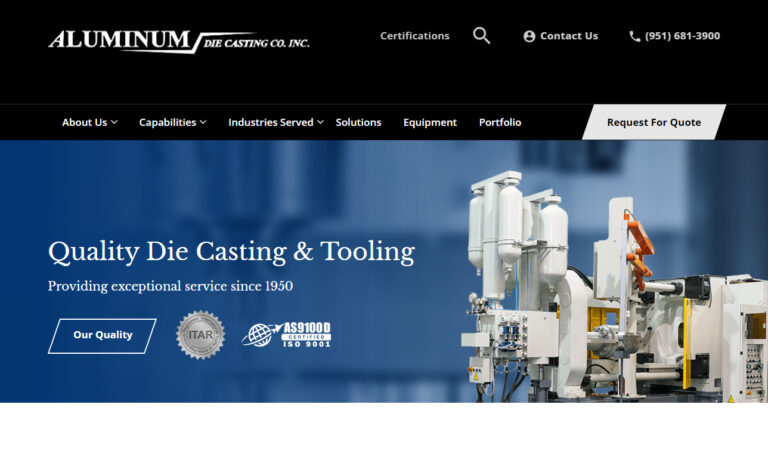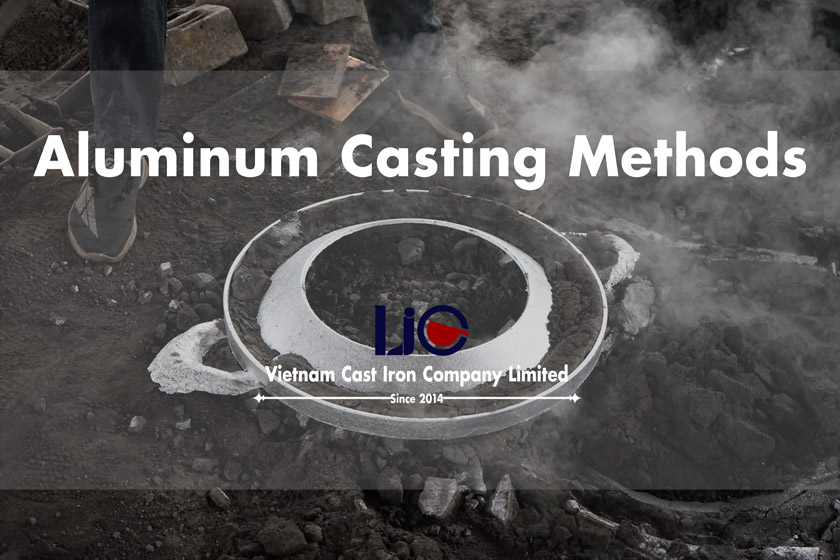More About Alcast Company
More About Alcast Company
Blog Article
9 Easy Facts About Alcast Company Explained
Table of ContentsAlcast Company for DummiesThe Best Guide To Alcast CompanySome Ideas on Alcast Company You Should KnowEverything about Alcast CompanyFacts About Alcast Company UncoveredA Biased View of Alcast Company
Chemical Comparison of Cast Aluminum Alloys Silicon advertises castability by minimizing the alloy's melting temperature and improving fluidness during casting. In addition, silicon contributes to the alloy's strength and put on resistance, making it useful in applications where longevity is important, such as automobile parts and engine parts.It likewise improves the machinability of the alloy, making it much easier to refine into completed items. In this means, iron adds to the general workability of aluminum alloys. Copper increases electric conductivity, making it advantageous in electrical applications. It additionally enhances corrosion resistance and contributes to the alloy's general strength.
Manganese contributes to the stamina of aluminum alloys and boosts workability. Magnesium is a light-weight element that provides strength and effect resistance to aluminum alloys.
Our Alcast Company Statements
Zinc enhances the castability of light weight aluminum alloys and helps manage the solidification procedure during spreading. It enhances the alloy's strength and hardness.

The main thermal conductivity, tensile strength, yield strength, and prolongation vary. Select ideal resources according to the efficiency of the target product generated. Among the above alloys, A356 has the highest possible thermal conductivity, and A380 and ADC12 have the cheapest. The tensile limit is the contrary. A360 has the most effective yield toughness and the highest possible elongation rate.
Alcast Company for Beginners

In precision casting, 6063 is fit for applications where elaborate geometries and premium surface area finishes are extremely important. Examples consist of telecommunication units, where the alloy's superior formability enables smooth and cosmetically pleasing layouts while preserving architectural honesty. Similarly, in the Lighting Solutions industry, precision-cast 6063 components produce classy and efficient lights components that require intricate shapes and great thermal performance.
It brings about a better surface area finish and far better corrosion resistance in A360. In addition, the A360 shows remarkable prolongation, making it excellent for complicated and thin-walled parts. In precision casting applications, A360 is appropriate for markets such as Customer Electronic Devices, Telecommunication, and Power Devices. Its improved fluidity permits detailed, high-precision components like mobile phone casings and communication tool real estates.
The Best Strategy To Use For Alcast Company
Its one-of-a-kind homes make A360 a valuable option for precision casting in these markets, improving product durability and high quality. Light weight aluminum alloy 380, or A380, is a commonly made use of casting alloy with a number of unique features. It supplies exceptional castability, making it a perfect choice for precision spreading. A380 displays great fluidness when molten, ensuring intricate and comprehensive mold and mildews are properly recreated.
In precision spreading, light weight aluminum 413 shines in the Consumer Electronics and Power Equipment markets. It's generally utilized to craft elaborate parts like mobile phone housings, camera bodies, and power tool cases. Its accuracy is amazing, with tight resistances up to 0.01 mm, ensuring perfect item assembly. This alloy's remarkable rust resistance makes it an outstanding selection for outdoor applications, making sure long-lasting, resilient products in the pointed out industries.
Alcast Company - An Overview
When you have decided that the light weight aluminum die casting procedure is suitable for your job, a critical next step is choosing the most appropriate alloy. The light weight aluminum alloy you select will substantially affect both the casting process and the residential or commercial properties of the last product. Due to this, you need to make your decision very carefully and take an informed strategy.
Establishing one of the most suitable aluminum alloy for your application will indicate considering a large selection of features. These comparative alloy attributes adhere to the North American Die Casting Association's guidelines, and we've split them into 2 groups. The initial classification addresses alloy characteristics that influence the manufacturing process. The 2nd covers qualities influencing the buildings of the final product.
Alcast Company Fundamentals Explained
The alloy you select for die casting directly influences a number of aspects of the casting procedure, like how very easy the alloy is to deal with and if it is prone to casting defects. Warm cracking, also recognized as solidification cracking, is a typical die spreading flaw for aluminum alloys that can lead to internal or surface-level tears or fractures.
Specific light weight aluminum alloys are much more at risk to warm breaking than others, and your choice should consider this. It can harm both the actors and the die, so you should look for alloys with high anti-soldering properties.
Rust resistance, which is currently a notable quality of aluminum, can differ significantly from alloy to alloy and is click to read more a crucial characteristic to consider relying on the ecological conditions your item will certainly be subjected to (aluminum foundry). Use resistance is an additional home frequently sought in aluminum items and can separate some alloys
Report this page